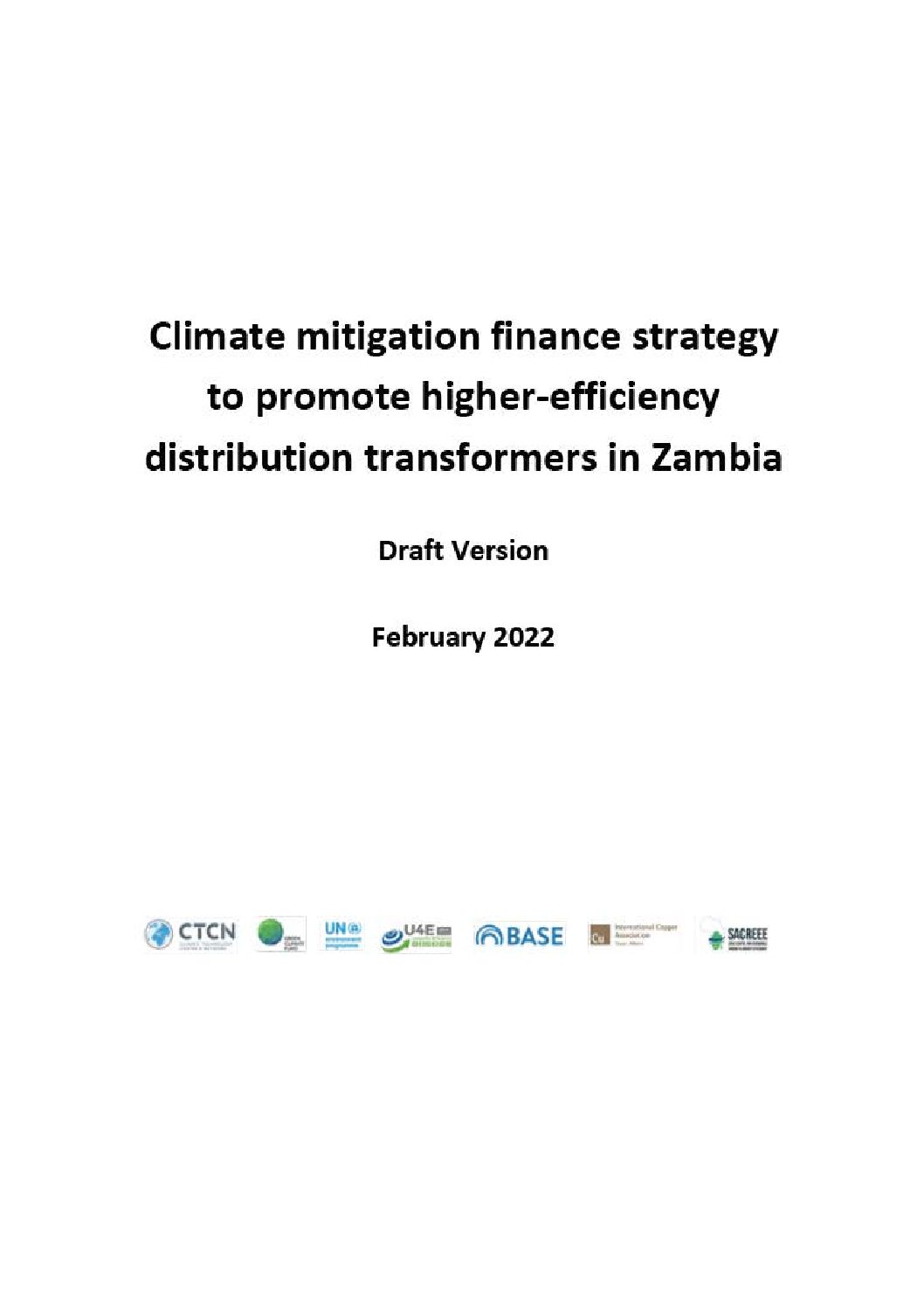This report assesses the progress of the energy transition in the Dominican Republic and identifies future pathways.
The Global Innovation Hub aims to promote transformative innovations for a low-emission and climate-resilient future.
This guide aims to help energy statisticians understand the various elements and processes involved in renewable energy data collection and management, and identify capacity gaps. It covers seven requirements for effective data management: 1. Legal and institutional frameworks; 2. Well-defined data requirements; 3. Sufficient skilled personnel; 4. Clear methodologies and processes; 5. Appropriate data collection […]
The is comprehensive course is intended for energy statisticians working at national statistical offices and ministries in charge of energy.
Climate mitigation finance strategy to promote higher-efficiency distribution transformers in Zambia
This report investigates efforts to enhance investment in efficient distribution transformers in Zambia, and provides recommendations to enhance the effectiveness of these efforts
This report highlights the economic, social and environmental benefits that energy and transport sector-coupling and a transition towards EV- and RE-based, efficient systems can create in small island settings, and provides tools for the planning of such a transition.
This paper presents the results of a techno-economic study of a potential waste-to-energy plant in Kampala, Uganda, including modeling to project energy generation potential and the payback period for the initial investment.
This brief presents the regulatory framework and country context for waste-to-energy projects in Côte d’Ivoire.
This feasibility study describes the institutional framework for waste management in Côte d’Ivoire, presents a baseline on compost and biogas value chains, and provides a feasibility assessment based on economic models.
This study quantifies the potential of producing biogas based on organic waste in two municipalities in Bolivia.







